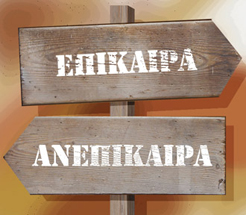How did the story come about?

- Humpty Dumpty as described in Lewis Caroll’s book
Nobody knows exactly who or what Humpty Dumpty was. The rhyme was first printed in 1810 and became famous through Lewis Caroll’s book, ‘Alice Through the Looking Glass’, where Humpty Dumpty is shown as a round egg. However, it is a very old rhyme and goes back much earlier than this.
Humpty Dumpty was a common “nickname”, used in 15th century England, to describe large people. This had led to many ideas as to who, or what, the Humpty Dumpty in the nursery rhyme really was. The idea that ‘Humpty Dumpty’ was a powerful cannon, used during the English Civil War (1642-49), is one of the ideas taken most seriously.
Cannons, at this time, were very heavy and moving them, even the smallest, took many men.
Is any of the story based on fact?

- The damaged tower of St Mary’s by the Wall church
At the time of the civil war in 1648, Colchester was a town with a castle and several churches and was protected by the city wall.
During the siege of Colchester, the 15th century tower of the church known as ‘St Mary’s by the Wall’ was indeed much damaged. This happened because, on June 15th 1648, the church was strengthened against attack, by putting a cannon on the roof. As in the story, a gunner known as ‘One-Eyed Jack Thompson’ fired the cannon. He caused a lot of damage to Lord Fairfax’s attacking troops.
Thompson’s success made many of the Roundheads fire onto the church roof and, sometime during the 14th or 15th of July, Thompson and his gun came tumbling down. The damaged cannon could not be raised again.
This was one of a number of setbacks and, on August 28th 1648, the Royalists lay down their weapons, opened the gates of Colchester and surrendered to the Parliamentarians.
Are there any other explanations for the rhyme’s origin?
This is just one of the explanations for the origins of Humpty Dumpty, but there is no proof that these events are the origin of the nursery rhyme character, as claimed by local folklore. There are other ideas. One says that “Humpty Dumpty” referred to Charles I himself – the Humpty Dumpty of England. He was toppled by the Puritan majority in Parliament (the great fall). The King’s army (Cavaliers) could not give his power back and Charles I was executed. Another idea says the rhyme refers to King Richard III and his defeat at the Battle of Bosworth. Yet another says that Humpy Dumpty was based on the sudden catastrophic fall of Cardinal Wolsey from Henry VIII era. The Cardinal became ill on the way to his trial and died before he got to London. He was Henry’s most trusted friend for a long time, until Anne Boleyn came along and turned Henry against him. No one expected him to be toppled so quickly.
However, whether these legends are true or not, the idea of Humpty Dumpty as a large cannon makes a great story.
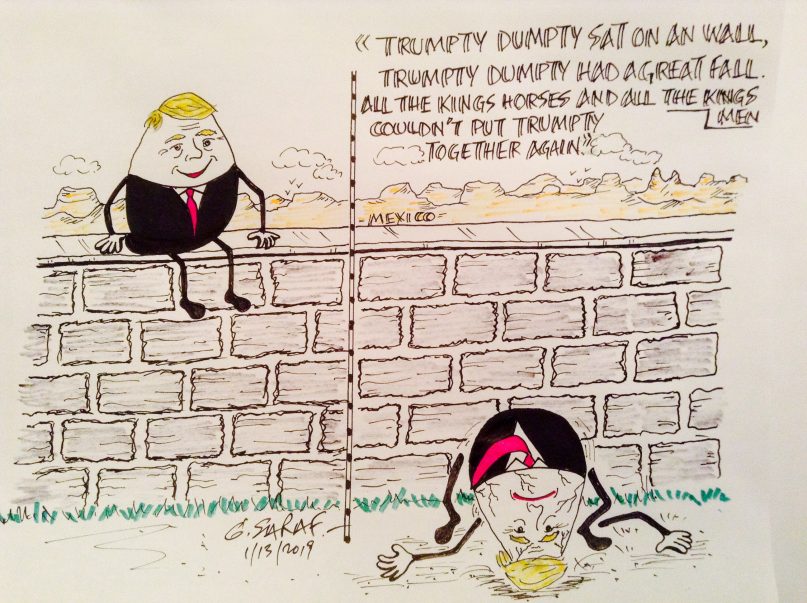
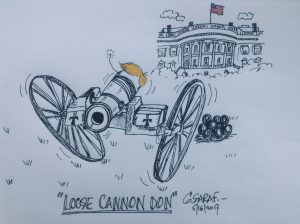









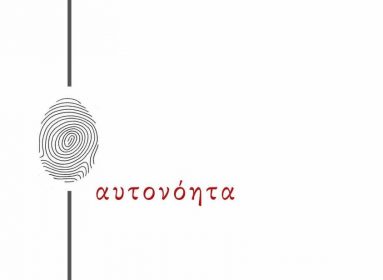
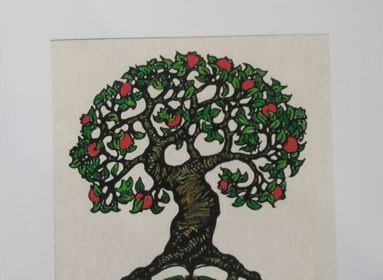














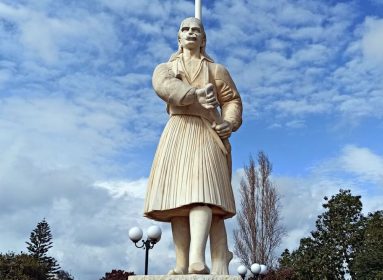
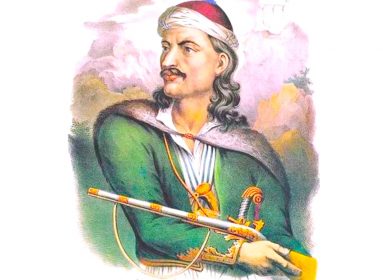

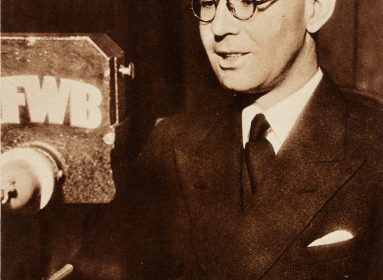




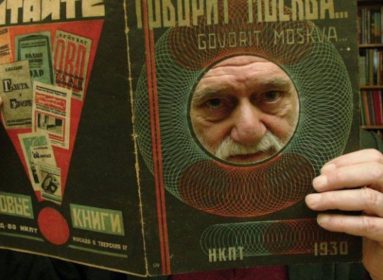










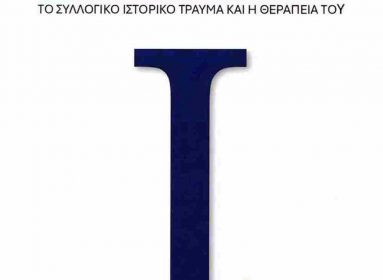
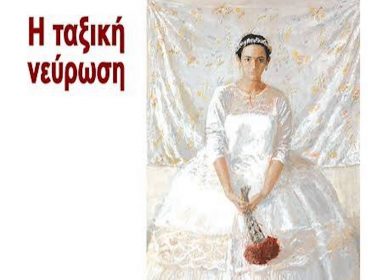














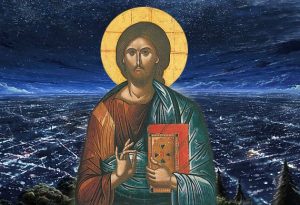


 Το σκίτσο είναι του Βαγγέλη Παυλίδη
Το σκίτσο είναι του Βαγγέλη Παυλίδη
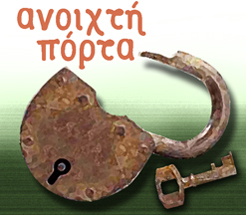
 Στηρίξτε-Ενισχύστε την iΠόρτα με τη δική σας χορηγία…
Στηρίξτε-Ενισχύστε την iΠόρτα με τη δική σας χορηγία…